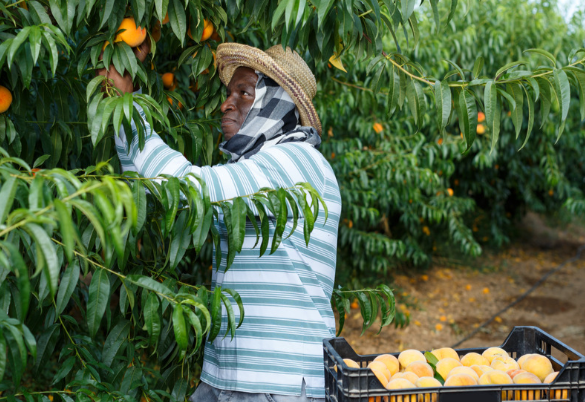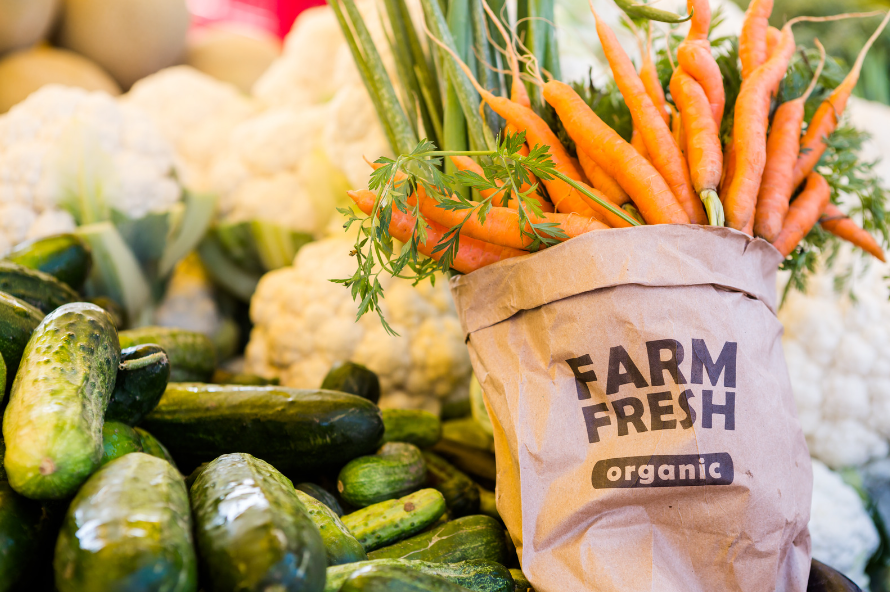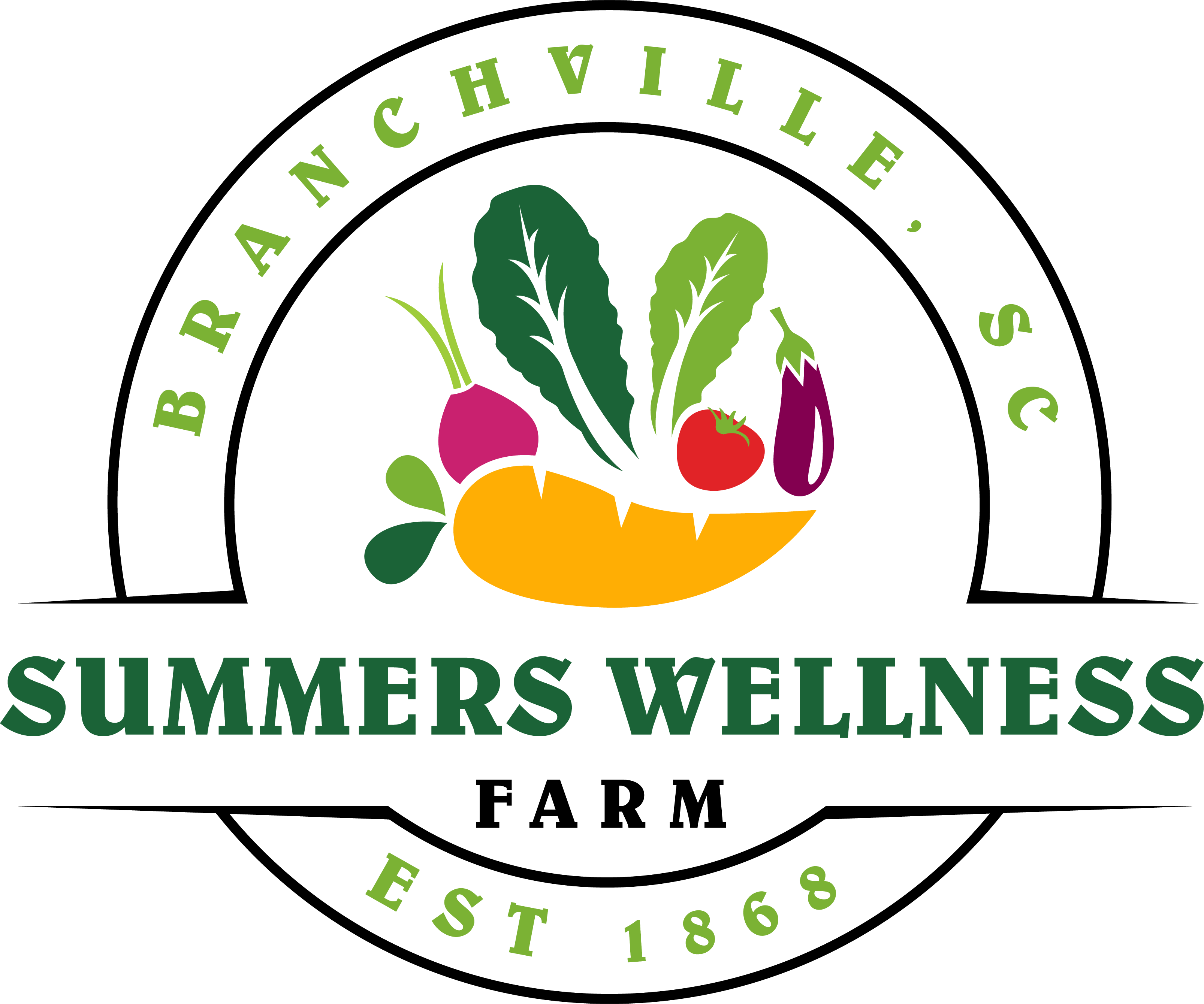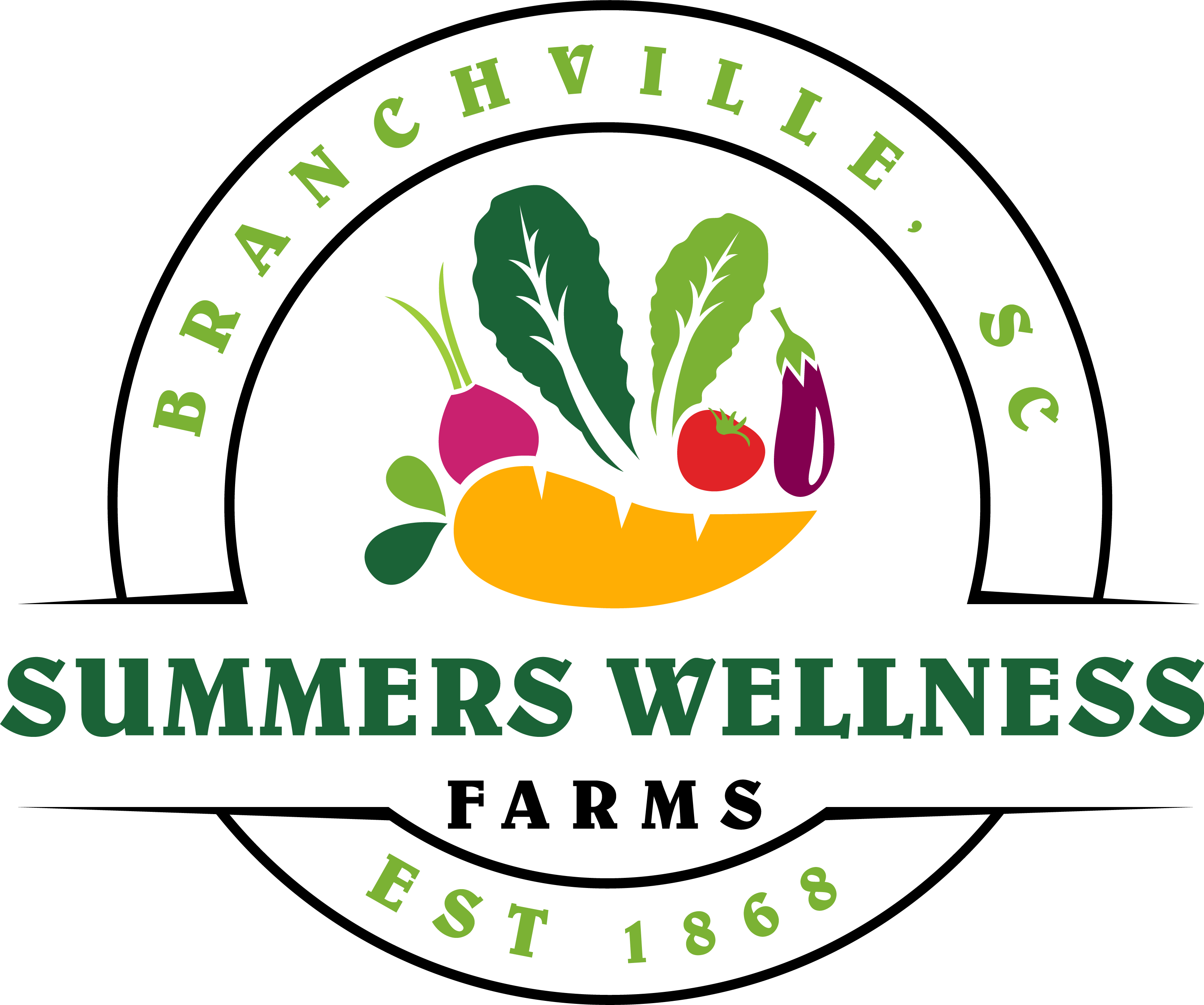Sustainability of Organic Produce
Organic Produce: Better for You, Better for the Earth
Explore the health and sustainability farming practices of organic food.
As an environmentally conscious grocery shopper, you face a growing dilemma: how to feed your family nutritious, high-quality food while ensuring that your choices support the planet. The good news is that organic produce, cultivated through sustainable farming practices, offers a solution that aligns with your values and lifestyle. By understanding how organic farming and purchasing practices contribute to environmental sustainability, you can make informed choices that benefit your health and the Earth.
Support sustainable farming practices—place your order with Summers Wellness Farm today!

What Are Sustainable Farming Practices?
Sustainable farming practices are food-growing methods prioritizing the long-term health of the environment, society, and the economy. These techniques minimize environmental harm, reduce resource consumption, and promote biodiversity. Organic farming exemplifies sustainable practices by avoiding synthetic chemicals, conserving water, and improving soil health. By focusing on harmony with nature, sustainable farming reduces the strain on resources and ensures the land remains productive for future generations.
Through these eco-friendly practices, organic farming helps to:
- Protect ecosystems and wildlife habitats by creating balanced environments, encouraging natural pest control, and supporting pollinators.
- Eliminating harmful chemical inputs and relying on practices like cover cropping and no-till farming can reduce pollution and greenhouse gas emissions.
- Improve soil fertility for future generations by nurturing microbial life and ensuring soil retains nutrients and moisture.
Sustainable farming also fosters resilience against climate change by enhancing soil’s ability to sequester carbon and using adaptive strategies to weather climate conditions. When you choose organic produce, you directly support these essential efforts to preserve our planet while encouraging responsible land stewardship. These practices ensure a healthier planet and a sustainable food supply for future generations.
How Organic Produce Supports Environmental Sustainability
Preserving Soil Health
Conventional farming often relies on chemical fertilizers and pesticides, which degrade soil quality over time. By contrast, organic farming prioritizes using compost, crop rotation, and natural fertilizers. These practices enrich the soil, improving its structure and fertility. Healthy soil yields nutritious crops and sequesters carbon, reducing greenhouse gases in the atmosphere.
By choosing organic produce, you support farming practices that:
- Reduce soil erosion by maintaining ground cover and minimizing tillage.
- Increase organic matter and microbial activity in the soil, which improves soil structure and fertility.
- Promote carbon sequestration, which helps combat climate change by capturing and storing atmospheric carbon in the soil.
Additionally, organic farming practices reduce the risk of desertification, a growing global concern. Organic farming ensures the land remains arable and productive for future generations by maintaining soil health. This approach also enhances water retention in the soil, reducing the need for excessive irrigation and helping crops withstand drought conditions.
Protecting Water Resources
Water pollution is a significant environmental concern, particularly in areas impacted by conventional agriculture. Pesticides and chemical fertilizers often run off into nearby water bodies, contaminating rivers, lakes, and groundwater. Organic farming eliminates these harmful chemicals, protecting water quality and conserving precious freshwater resources.
Supporting organic farming means:
- Reducing agricultural runoff that carries pollutants into aquatic ecosystems
- Conserving water through efficient irrigation techniques such as drip irrigation and rainwater harvesting
- Protecting aquatic ecosystems from harmful pollutants and preserving habitats for fish, amphibians, and other aquatic life
Organic farming’s focus on soil health also contributes to water conservation. Healthy, organic-rich soil absorbs and retains water more effectively, reducing water waste and ensuring crops have consistent access to moisture. This benefits the environment and strengthens food security by making farms more resilient to water shortages.
Promoting Biodiversity
Modern industrial farming often leads to monocultures, which harm biodiversity by displacing native plants and animals. Organic farming, however, encourages diverse crop rotations and integrates natural habitats into agricultural landscapes. This approach provides pollinators, birds, and other wildlife refuge, creating a balanced ecosystem.
Organic farming’s role in biodiversity includes:
- Preserving habitats for beneficial insects and pollinators such as bees and butterflies, which are essential for crop pollination
- Cultivating a wide range of crops that promote genetic diversity and reduce the risk of crop failure due to pests or diseases
- Reducing the need for chemical inputs that harm wildlife and disrupt ecosystems
Organic farming ensures healthier ecosystems that can better adapt to environmental changes by supporting biodiversity. It also contributes to pest control by fostering natural predators and reducing the need for harmful pesticides. This interconnected approach strengthens the resilience of farms and the surrounding environment, creating a sustainable balance between agriculture and nature.
Addressing Concerns of Environmentally Conscious Shoppers
For many environmentally conscious grocery shoppers, sustainability is more than just the food you buy—it’s about your choices’ impact on the planet. Organic produce addresses several common concerns:

Are Organic Farming Practices Truly Sustainable?
Yes, organic farming is one of the most sustainable approaches to food production. Unlike conventional agriculture, which relies on finite resources like synthetic chemicals, organic farming builds long-term resilience by working with nature rather than against it.
Is Organic Produce Better for the Environment?
Organic farming reduces agriculture’s carbon footprint by eliminating energy-intensive synthetic fertilizers and pesticides. Additionally, organic farms often use renewable energy and promote energy efficiency.
Does Organic Farming Support Local Communities?
Sustainable farming practices foster healthy communities by:
- Offering fair wages to farmworkers
- Reducing exposure to harmful chemicals
- Encouraging local food systems that support small-scale farmers
Is Organic Produce Free of Pesticides?
While organic farming may use natural pesticides, these are derived from plant or mineral sources and are subject to strict regulations. These alternatives are safer for the environment and human health than synthetic pesticides used in conventional farming.
How Does Organic Farming Address Climate Change?
Organic farming mitigates climate change by promoting carbon sequestration in soil and reducing greenhouse gas emissions. Practices like cover cropping, reduced tillage, and composting help store carbon and improve soil health.
Does Organic Farming Use Less Energy?
Organic farming is typically less energy-intensive than conventional farming because it avoids synthetic fertilizers and pesticides, which require significant energy. Organic farms also often employ renewable energy and energy-efficient techniques.
Is Organic Produce Affordable?
While organic produce can sometimes cost more upfront, it delivers long-term value by supporting sustainable farming systems, reducing environmental costs, and offering healthier, chemical-free food. Many farms and co-ops also provide subscription boxes or seasonal deals to make organic produce more accessible.
How Buying Organic Produce Contributes to a Sustainable Lifestyle
When you choose organic produce, you’re doing more than simply selecting fresh fruits and vegetables for your family—you’re actively committing to a lifestyle that respects and nurtures the environment. Organic produce supports sustainability in several key ways:
Reducing Your Carbon Footprint
Organic farming practices actively reduce greenhouse gas emissions and energy use. Methods such as composting, cover cropping, and reduced tillage sequester carbon in the soil, helping to offset carbon emissions. Additionally, organic farms often rely on renewable energy sources and avoid energy-intensive synthetic fertilizers and pesticides, reducing their environmental impact.
By supporting organic produce, you directly contribute to farming systems that help combat climate change and promote environmental health.
Supporting Ethical Food Systems
Organic agriculture strongly emphasizes fairness and sustainability for the land and the people involved in the food supply chain. By choosing organic, you are helping to support farmers who prioritize fair wages, humane treatment of animals, and the avoidance of harmful chemicals that can negatively impact farmworker health. Ethical food systems ensure that people and the planet are treated respectfully.
Encouraging a Circular Economy
Waste becomes a valuable resource rather than an environmental burden in organic farming. Food scraps and other organic waste are often transformed into nutrient-rich compost, which helps replenish the soil. This closed-loop system reduces landfill waste, lowers methane emissions, and supports healthier crop growth. By purchasing organic, you’re helping close the agricultural system’s loop, promoting a sustainable cycle that benefits everyone.
Eating Seasonally and Locally
Many organic farms focus on growing seasonal and local crops that align with sustainable practices. Seasonal produce reduces the need for energy-intensive refrigeration and transportation, while local sourcing shortens supply chains, resulting in fresher food with a smaller carbon footprint. Eating seasonally also supports local farmers, fostering stronger connections between consumers and producers.
By choosing organic produce, you’re making a meaningful contribution to a more sustainable lifestyle that values the health of both people and the planet.
Why Summers Wellness Farm Is Your Partner in Sustainability
At Summers Wellness Farm, sustainability isn’t just a buzzword—it’s our way of life. We are committed to:
- Growing produce using certified organic and sustainable farming practices
- Conserving natural resources like water and soil
- Supporting biodiversity through crop diversity and natural habitats

Our farm goes beyond growing organic produce. We aim to educate and empower environmentally conscious shoppers like you to make sustainable choices that support your values.
Making the Switch to Sustainable Living with Organic Produce
Transitioning to a more sustainable lifestyle begins with small, impactful choices. By purchasing organic produce, you’re taking a stand for:
- Healthier ecosystems
- Cleaner water
- Fair and ethical food systems
At Summers Wellness Farm, we make it easy to integrate sustainable farming practices into your everyday life. Our fresh, sustainably sourced organic produce is grown with care for the environment and your health.
Your path to sustainability begins here.
Experience the Difference of Sustainably Sourced Organic Produce
Are you ready to align your grocery shopping with your commitment to sustainability? At Summers Wellness Farm, we offer a wide selection of organic fruits and vegetables grown using sustainable farming practices. Each purchase you make helps protect the planet while nourishing your body.
Make an impact with every meal—shop Summers Wellness Farm’s organic produce now!

